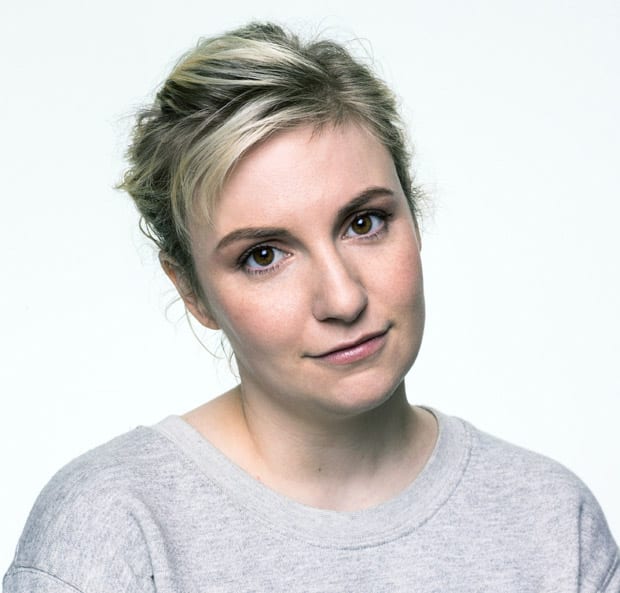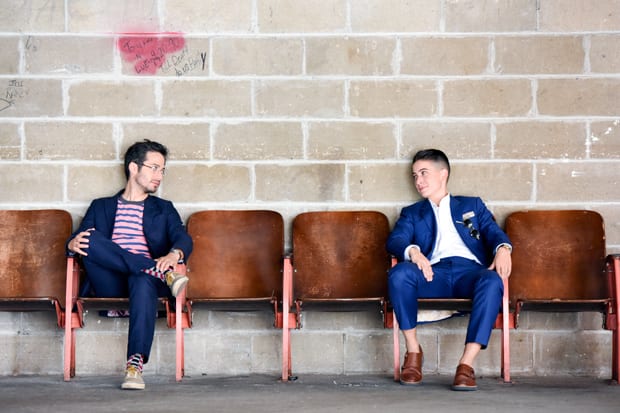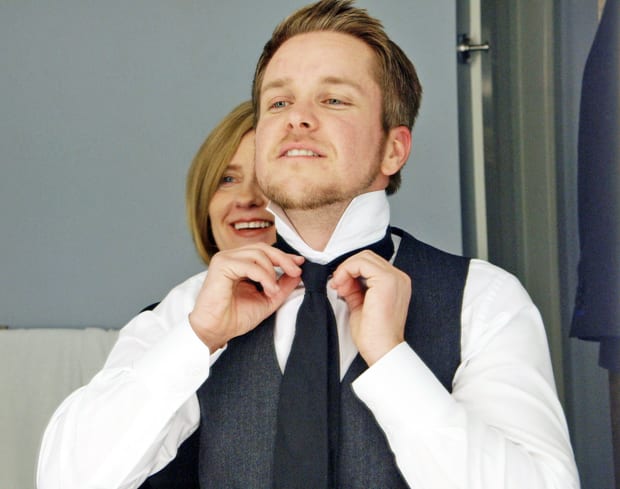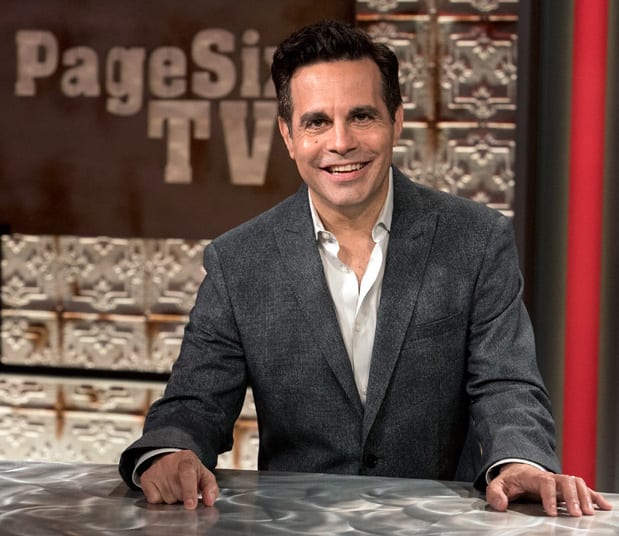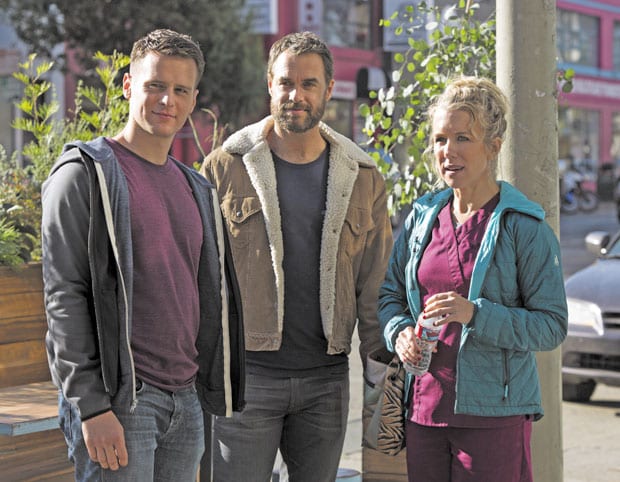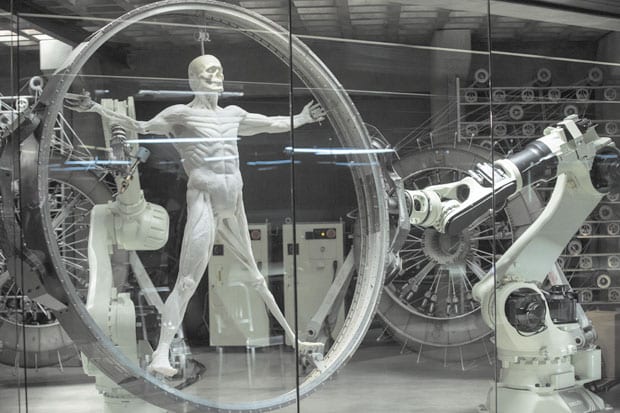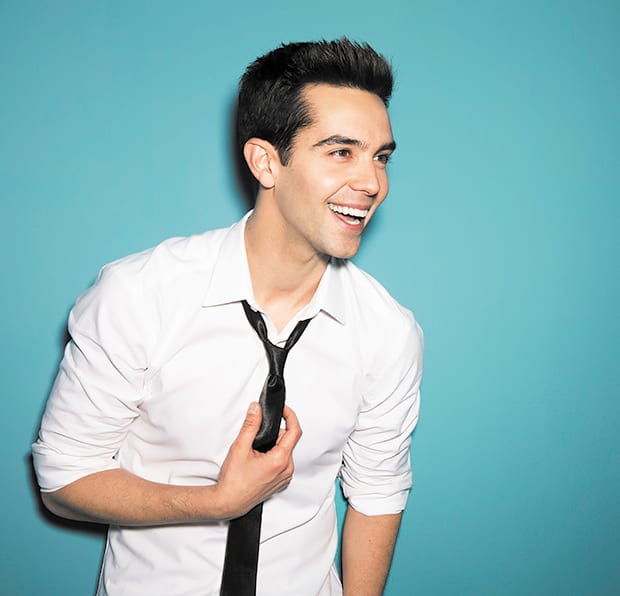 Lisa Kudrow’s Valerie Cherish might be the washed-up star of her own show, but it’s her trusty hairdresser, Mickey Deane, who makes her look like one.
Lisa Kudrow’s Valerie Cherish might be the washed-up star of her own show, but it’s her trusty hairdresser, Mickey Deane, who makes her look like one.
For two seasons of HBO’s sharp reality-show satire The Comeback, Mickey Deane — played by Robert Michael Morris — has endured the plights of humiliation right alongside Valerie herself … all in the name of friendship. From Season 1’s cupcake fiasco to Val’s tasteless improv riffs after his cancer diagnosis during the second installment, the manny-pack-wearing Mickey’s seen it all as has “Red,” as he affectionately calls her. She once walked in on him in bed, sprawled out, naked.
As the entire 21-episode series (so far) hits DVD, the Kentucky-born Morris phoned to chat with our Chris Azzopardi about how that emotional finale was “all in Lisa’s eyes,” his former career as an English teacher and why he decided to bare his butt during the show. And no, he doesn’t do hair.
Dallas Voice: I just watched the season 2 finale for probably the 15th time. I can’t shake it. Those last few minutes are some of the most brilliant minutes in television history. What was the vibe of the cast during the finale shoot? Robert Michael Morris: Well, I was away for most of it. The hospital scene — they were shooting other stuff, but I was just waiting in the hospital bed, so for me it was very easy. Just lie there! We didn’t wrap that last scene until 4:20 that morning, so it was quite late in the day. I keep using the word “honest,” and that’s the thing I always appreciated about the show. It seemed to me to always be so honest, and the relationship between Lisa and I really crystallized in that last moment.
That’s true. By the end of the second season, Valerie realized what really mattered. Oh, she always realized it. It’s like you can’t walk away from a sick child, and when Mickey, who had always been with her forever — 25 years longer than her marriage — seeing him on his way out became the priority for her. I have got to get to him. I have got to get to him. When she gets there and finds out it was the medication and he’s just a frightened mess in the bed — and she’s comforting him for a change — it really revealed the depth of their relationship. A lot of times we skate on the surface, and it’s only when the rubber hits the road that you can plumb the depths of what it is.
Nothing has been confirmed regarding a third season of the show. And seeing it took nearly 10 years for a second season, it could be that long before we see a third. Did the uncertainty of the show’s future make shooting this past season emotional? Oh, I don’t think that played into it — it certainly didn’t play into it for me. You hear actors say a lot of times they have to be in the moment, and if you’re playing something for effect, it rings false. HBO has always loved the show and they were incredibly supportive of this show. Well, the current HBO people. I think the first HBO person, whomever he was, didn’t get it. It was also, at that time, the only show that HBO had where there was a female lead. They were all male leads. And [the show] is about the business, which for them was uncomfortable.
I feel pretty confident in saying that there is gonna be a third season. There will be a third one, I’m almost positive. Lisa has already said in many interviews there will be, and [co-creator Michael Patrick King] has said there will be, and HBO has said we’re leaving the door open. It takes a while to write something of quality, and I think that’s what they’re doing now. But they know what they want. Michael said to me, “We wanna make sure the next time is something worthwhile, that it’s something that will be what people wanna see about Valerie.” Lisa’s already said, “I’m not done with that character.” I don’t know where she can go: Oscar? Tony?!
 You must have been over the moon when Lisa recently received an Emmy nomination for best actress in a comedy. Oh, I was thrilled to death! I emailed her right away and she got right back to me and said, “Thank you.” But this gives you an idea of the kind woman she is: She said, “… however, it’s bittersweet because they overlooked two other Michaels.” She’s a neat lady.
You must have been over the moon when Lisa recently received an Emmy nomination for best actress in a comedy. Oh, I was thrilled to death! I emailed her right away and she got right back to me and said, “Thank you.” But this gives you an idea of the kind woman she is: She said, “… however, it’s bittersweet because they overlooked two other Michaels.” She’s a neat lady.
How would you like to see the relationship between Valerie and Mickey evolve during a potential third season? Oh, I don’t know. She’s seen me bleeding, she’s seen me naked, she’s seen me laid out on a hospital bed scared out of my mind. It can only go up from there!
When your character was first developed, how did you find the Mickey that we came to know by the end of the second season? I know that Michael and Lisa did not want a screaming stereotype. Mickey was just a human being and he didn’t think of himself as gay. Remember in the first episode he says to her before he went to the restaurant, “Did you tell Juna I was gay?” Now anybody with half a brain — or Stevie Wonder, who can’t see — knew he was flittin’ around. But he was just being him, so he couldn’t imagine why Juna would think that he was gay. And the look on Lisa’s face — her take on that was, I thought, masterful. So he finally decides by the end of that season to come out, and he’s a little long in the tooth to be coming out, but he decided to come out. He brings his boyfriend Robert to the party and kisses him on national television — or on the reality show, anyway — and Lisa’s only comment is, “Well, that’s out of the way.”
Can you elaborate on exploring Mickey’s sexuality during the series? I think it’s a common thing — well, maybe not common, but it’s not so extraordinary that men who do have a sexual preference for men don’t believe anybody knows. I’ve heard stories of people who were major celebrity types who like to crossdress but they don’t think anybody knows it. I mean, what exactly makes somebody gay? Now they’re all saying it’s the way you talk. Other people say it’s the way you walk. In high school, one of my dearest friends was effeminate, and effeminacy is not the same as being gay. In fact, there was a marvelous Saturday Night Live skit with Dana Carvey where his kids all thought he was gay because he liked to do interior decoration and arrange flowers, and maybe he had a bit of a stereotypical speech pattern, but his own children thought he was gay, and he wasn’t.
 It’s a very complicated issue, and what I liked about it [on the show] was that they didn’t want the same kind of approach to it that is often used. Right away it goes to the humor and not necessarily truth. Then after he comes out or announces on the show that, in fact, he is [gay], I think there’s a kind of freedom in him, but you’ll notice he doesn’t noticeably change. He doesn’t start wearing loud colors. I mean, he really likes jewelry, but what’s wrong with a little personal adornment?
It’s a very complicated issue, and what I liked about it [on the show] was that they didn’t want the same kind of approach to it that is often used. Right away it goes to the humor and not necessarily truth. Then after he comes out or announces on the show that, in fact, he is [gay], I think there’s a kind of freedom in him, but you’ll notice he doesn’t noticeably change. He doesn’t start wearing loud colors. I mean, he really likes jewelry, but what’s wrong with a little personal adornment?
In what ways are you and Mickey alike? Well, I do like wearing jewelry, although I go through phases. [Laughs] A lot of the jewelry that was used in the show was mine. I brought it all in. In fact, as we started doing the show, I bought a lot of stuff on eBay.
Do people expect you to know a lot about hair? Yes, they do … and I don’t! I ran three college drama departments, and I was always pretty much a one-man band, so I had to learn how to do everything. I had to learn how to sew — not well, but at straight seaming I’m a whiz. And I don’t really know fabrics that well — I’m not really a tailor. I also had to learn how to do wigs. A lot of Mickey is based on some people that I know who were hairdressers who helped me out when I was teaching college. When we first started the show, I would sit and watch Lisa’s hairdresser style and do her wig for her. I watched what he did and I just tried to do that without screwing up what he had done. I think actors observe. You have to watch people, and I think you have to know what you’re doing or it rings false. I take it as a great compliment that people think I was or am a hairdresser, but it couldn’t be further from the truth!
Have you ever worked with a Valerie Cherish-type? No; most of my life, I was primarily a teacher. I taught for over 25 years. I had no intention of doing show business because I had done very little television. I did one under-5 [a character who has fewer than five lines of dialogue] for All My Children so long ago that Erica Kane still had her communion money, but I was working there after the teaching thing ended. I was working for my brother and Michael King called me on Sept. 19 — I remember the date — and he said, “I’m working on a show with Lisa Kudrow, and there’s a part I think you would be really right for.”
You see, I had known Michael for a long, long time, and my brother would always say to me, “Why doesn’t he get you on Sex and the City?!” I said, “Look, I would never ask a friend for anything like that. To me, a friendship is more important than a job. He knows what I can do and when he can, he’ll do something.” And I told that to Michael. He said, “Oh, I could’ve used you, but it would’ve been a one-shot deal. I wanted to wait for something with more substance.” So I went to the audition for The Comeback and then the call-back and, to my surprise, I was hired. It was my first audition in Los Angeles; I hadn’t worked with anyone else. This is really my TV baptism.
 Looking back at the show’s two seasons, what scenes that you shared with Lisa stand out most to you? I mean, aside from that naked scene where your behind is on full display — because I imagine that’s a real highlight! I said one time in a meeting, “Everybody thinks that he’s a bottom anyway, so that makes perfect sense to me.” That’s what people think being gay is all about. “Top or bottom? Which one are you?”
Looking back at the show’s two seasons, what scenes that you shared with Lisa stand out most to you? I mean, aside from that naked scene where your behind is on full display — because I imagine that’s a real highlight! I said one time in a meeting, “Everybody thinks that he’s a bottom anyway, so that makes perfect sense to me.” That’s what people think being gay is all about. “Top or bottom? Which one are you?”
But let’s see. I always love her when she’s befuddled, when you can see her mind racing, like, “What do I do? How do I make this work?” And then, of course, that last scene I really love. And that’s all Michael and Lisa, I must tell you. They know what they want and everything is in Lisa’s eyes. When she looks at you, she’s bare. She’s a very, very honest performer.
How did that help you connect with her during that final hospital scene? There would be no scene if that wasn’t there. I remember one time someone asked Meryl Streep that [same question] when she did Sophie’s Choice and she said it was always in Kevin [Kline] and Peter MacNicol’s eyes — that’s where she got her performance. And I think that’s true for me — it was all in Lisa’s eyes. You’ll notice, if you watch it for the 16th time, because there are no cameras around, she’s not performing. To me, it was an amazing thing.
— Chris Azzopardi


 First airing 30 years ago this month, the made-for-television movie An Early Frost — a film about a young, closeted gay lawyer diagnosed with AIDS — was the first film ever to address the then-controversial subject matter. At the time, little was known about the disease and the virus which causes it. Gay men dying of AIDS were all too often considered little more than statistics. Many of those afflicted were outcast from their friends and families. The provocative landmark film dared to give the mysterious and frightening “gay” disease a human face.
First airing 30 years ago this month, the made-for-television movie An Early Frost — a film about a young, closeted gay lawyer diagnosed with AIDS — was the first film ever to address the then-controversial subject matter. At the time, little was known about the disease and the virus which causes it. Gay men dying of AIDS were all too often considered little more than statistics. Many of those afflicted were outcast from their friends and families. The provocative landmark film dared to give the mysterious and frightening “gay” disease a human face.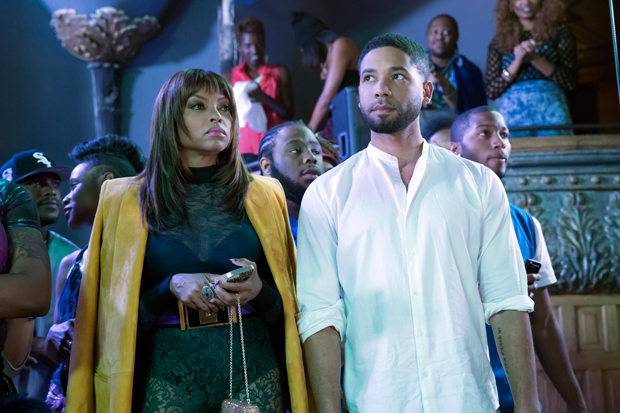

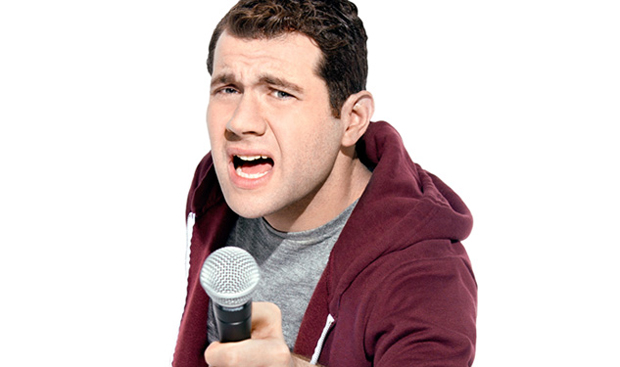
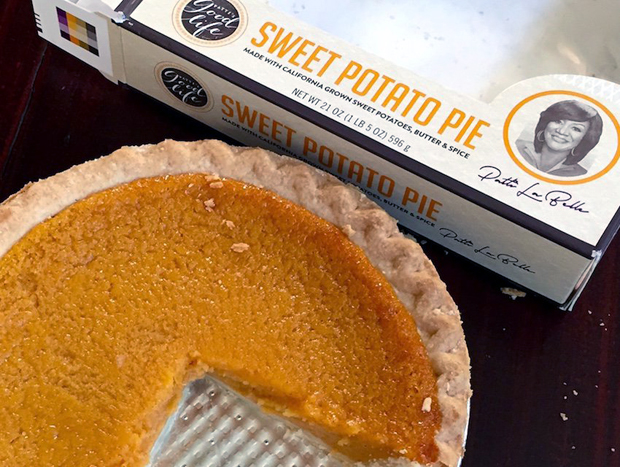
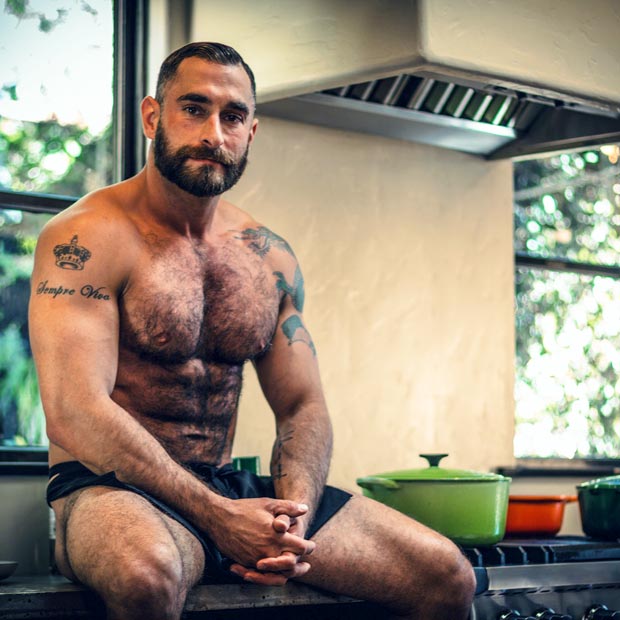
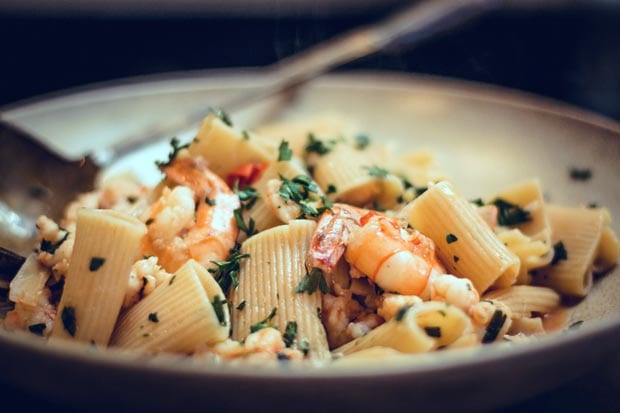
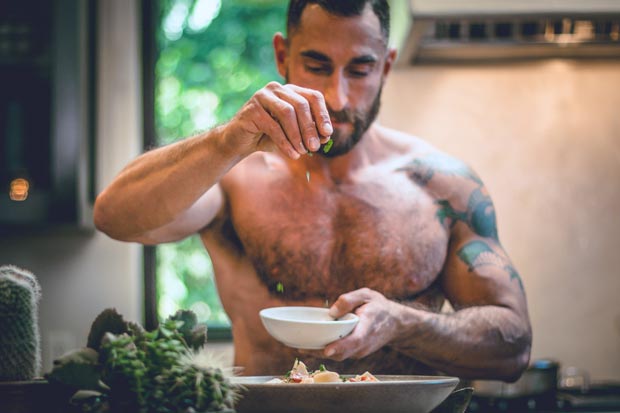






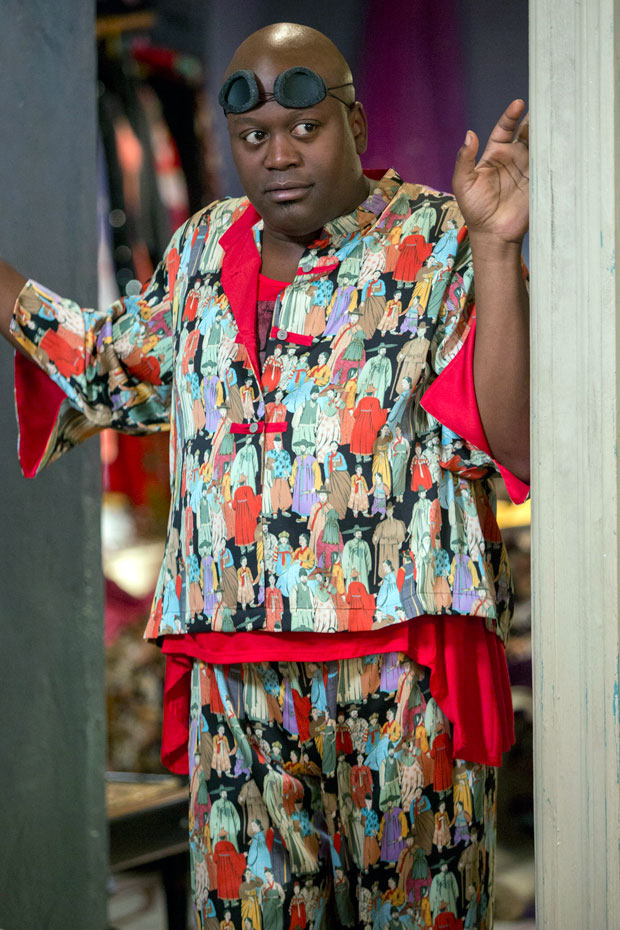

 Tonight on the Season 8 finale of RuPaul’s Drag Race, three diverse queens squared off against each other: Glamorous pageant girl Naomi Smalls, comedic wit Bob the Drag Queen and makeup illusionist Kim Chi. You could make an argument for any of them, but in the end, Ru was most impressed by comedy making Bob this year’s winner. Condragulations, my queen!
Tonight on the Season 8 finale of RuPaul’s Drag Race, three diverse queens squared off against each other: Glamorous pageant girl Naomi Smalls, comedic wit Bob the Drag Queen and makeup illusionist Kim Chi. You could make an argument for any of them, but in the end, Ru was most impressed by comedy making Bob this year’s winner. Condragulations, my queen! If there’s not cooking or Tim Gunn involved, I’m not much of one for reality TV, especially (though not exclusively) as practiced by TLC (which, I thought, used to stand for The Learning Channel but apparently now means Trashy Lifestyle Channel). The programming look very much like a race to be The Least Common Denominator (another TLC…D!) of cheap entertainment: Honey Boo-Boo. Duck Dynasty. Little Couples. I Am Cait. They seem like non-geographic versions of The Real Housewives — niche shows that hope, desperately, to grab eyeballs in a kind of freakshow of the airwaves: “Look, at these actual families of misfits behaving stupidly for your amusement!” They all seem to be touted with carnival-barker vulgarity.
If there’s not cooking or Tim Gunn involved, I’m not much of one for reality TV, especially (though not exclusively) as practiced by TLC (which, I thought, used to stand for The Learning Channel but apparently now means Trashy Lifestyle Channel). The programming look very much like a race to be The Least Common Denominator (another TLC…D!) of cheap entertainment: Honey Boo-Boo. Duck Dynasty. Little Couples. I Am Cait. They seem like non-geographic versions of The Real Housewives — niche shows that hope, desperately, to grab eyeballs in a kind of freakshow of the airwaves: “Look, at these actual families of misfits behaving stupidly for your amusement!” They all seem to be touted with carnival-barker vulgarity. It’s gay Pride month — our commemorative issue comes out next Friday, so look for it on newsstands and online — and the Logo network is showing documentaries focused on gay issues. Up this Monday: Out of Iraq: A Love Story. The film documents the efforts of an Iraqi-born translator for the American military who meets and falls in love with an Iraqi soldier, and when circumstances force them apart, his efforts to rescue his love from the homophobic regime. The politically-charged documentary airs June 13 at 8 p.m. Here’s a sneak peek.
It’s gay Pride month — our commemorative issue comes out next Friday, so look for it on newsstands and online — and the Logo network is showing documentaries focused on gay issues. Up this Monday: Out of Iraq: A Love Story. The film documents the efforts of an Iraqi-born translator for the American military who meets and falls in love with an Iraqi soldier, and when circumstances force them apart, his efforts to rescue his love from the homophobic regime. The politically-charged documentary airs June 13 at 8 p.m. Here’s a sneak peek.